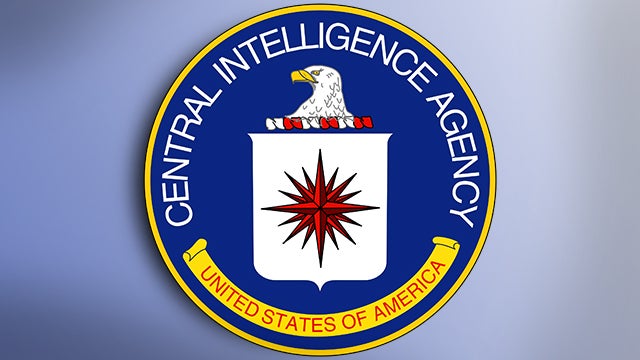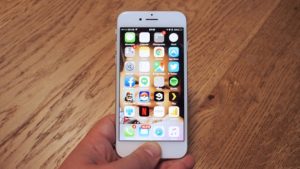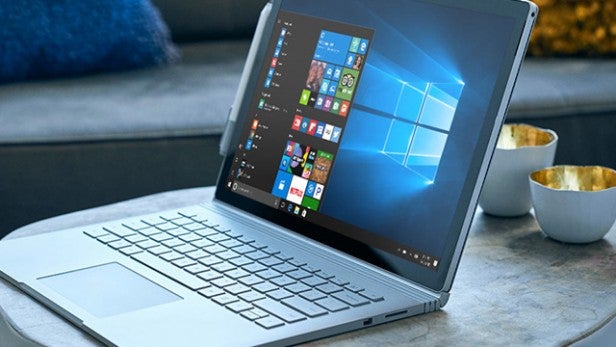Wikileaks CIA ‘Vault 7’ Hacking Dump: Should you care and why?

Wikileaks CIA ‘Vault 7’ Hacking Dump: Wikileaks has been up to its old tricks, dropping the largest trove of classified info yet. What’s it all about and should you care? Here are all the tech companies that have allegedly been affected, and what they have to say about.
Three months in to 2017 we’ve had our first Wikileaks hacking dump of the year. Happy Wikileaks Day to all! Following a troubled end to 2016, with allegations of Russian influence and assistance in the election of one Donald Trump over in the States, some might say the ‘whistle-blowing’ collective has redeemed itself by providing the public with access to a veritable feast of secret spying information and classified documents.
And it seems numerous tech firms have been affected by the CIA’s pursuit of nefarious individuals, as Wikileaks claims the agency has taken advantage of security flaws in companies’ software to monitor targets.
But there’s more to it than that. Earlier, we reported that Apple has responded to the latest revelations, reassuring users that their data is safe. However, smart TVs have also apparently been turned into clandestine listening devices, while the CIA has allegedly nurtured ambitions to hack and crash a bunch of smart cars.
Of course, the humble smartphone hasn’t escaped the CIA’s intensely watchful gaze, leaving the world in a state of anxiety over whether their ‘lads do Ibiza’ WhatsApp groups have been the target of official surveillance.
So what exactly is going on here? What do all these tech companies have to say for themselves? And should you be worried that you’ve essentially been hacked?
Well, we’re glad you asked…
Wikileaks CIA ‘Vault 7’ hacking dump: What is it?
In Wikileaks’ own words, the first ‘Vault 7’ release is the “largest ever publication of confidential documents” on the CIA.
The latest hacking dump contains more than 8,000 documents, revealing what the group claims is “the CIA’s global covert hacking program” and detailing the agency’s spying tools, many (if not most) of which could be used for mass surveillance projects.
The report covers the years 2013 to 2016, if you’re already prepping your alibis.
Related: iPhone 8
 GCHQ has been accused of helping develop some of the tools used by the CIA
GCHQ has been accused of helping develop some of the tools used by the CIA
Wikileaks, which is headed by the controversial Julian Assange, has given the first leak in the Vault 7 series the name “Year Zero,” and says more files will be forthcoming. The group claims to have obtained the documents in this new release from a high-security network inside the CIA’s Center for Cyber Intelligence in Langley, Virgina.
Adding to the revelations, a press release from Wikileaks claims the CIA “lost control of the majority of its hacking arsenal including malware, viruses, trojans, weaponized ‘zero day’ exploits, malware remote control systems and associated documentation.” Just how the agency “lost control” isn’t made clear, however.
In all, this is a significant release from the hacking group, which has dubbed the Vault 7 series “the largest intelligence publication in history”. So substantive is this latest hacking dump that it comprises more pages than those published over the first three years of the Edward Snowden NSA leaks.
It’s a big deal, in other words.
What’s the point of revealing this vast amount of information? Well, according to the source that helped to provide it, there should be “a conversation” about the CIA and whether it’s exceeded its mandated powers.
Wikileaks CIA ‘Vault 7’ hacking dump: What did the CIA actually do?
First off, it’s important to bear in mind that none of the information published by Wikileaks has been verified as authentic. The CIA is yet to make a statement on the publication, though Edward Snowden has weighed in to say he thinks the release is legitimate.
https://twitter.com/statuses/839157182872576000
There is some concern about the timing of the release. Wikileaks says it published the documents “as soon as its verification and analysis were ready,” and that President Trump’s Executive Order calling for a “Cyberwar” review “did not play a role in setting the publication date.”
Still, at a time when a significant part of the intelligence community is under pressure to investigate alleged Russian interference in the US election, Trump’s ties to Russia, and a very controversial election, the release of such substantive intelligence documents could certainly distract from these issues.
Related: Best Smartphone

So what do these documents seem to reveal? Well, the Vault 7 release specifically claims the CIA engaged in dozens of “weaponized exploits” against a wide range of US and European companies – and their consumer-facing products.
Here’s a more detailed breakdown of how each of these firms and their devices may have been affected…
iPhones and Android
According to the Year Zero release, the CIA’s Mobile Devices Branch (MDB) developed a series of attacks which allowed them to remotely hack and control smartphones. Phones controlled by the agency are said to have been capable of sending information about users back to the CIA, including geolocation and audio and text communications.
Wikileaks also claims the agency was able to activate phones, cameras and microphones without alerting the users, bypassing well-known encryption techniques used in apps such as WhatsApp.
As the release states: “These techniques permit the CIA to bypass the encryption of WhatsApp, Signal, Telegram, Wiebo, Confide and Cloackman by hacking the ‘smart’ phones that they run on and collecting audio and message traffic before encryption is applied.”
Related: All you need to know about Smart TVs and your privacy

If the Wikileaks release is accurate, then, it seems the end-to-end encryption techniques used by WhatsApp and Signal – widely touted as a robust defence against hacking – wouldn’t have posed much of a threat to the CIA’s hacking attempts. That’s due to the fact that the agency would have gained access to messages sent using these platforms through the operating system itself, and not via the apps.
The claims of remote hacking and control of smartphones applies to Android tool. But in the case of Google’s mobile OS, which is used on around 85% of smartphones in the world, the CIA is said to have developed 24 “weaponized” Android “zero days”, some of which were apparantly obtained from GCHQ, the NSA, and “cyber arms contractors.”
Windows, OS X and Linux devices
Desktop users weren’t spared either, according to the documents.Wikileaks says the CIA maintains a “substantial effort to infect and control Microsoft Windows users with its malware”. How? The same “zero day” vulnerabilities seem to have been exploited here, too, but there appears to have been further malware developed that is capable of infecting CDs and DVDs. This malware is also said to be able to write itself onto USB drives.

And it’s not just Windows. It’s claimed the CIA developed “malware attack and control systems” designed to be used on Mac OS X, Solaris, Linux, and other operating systems such as EDB’s “HIVE” and the related “Cutthroat” and “Swindle” tools.
Samsung Smart TVs
One of the more publicised revelations to come out of the latest hacked documents is the CIA’s apparent efforts to control smart TVs. Specifically, it’s claimed the organisation targeted Samsung smart TVs, and was aided in its efforts by the UK’s MI5/BTSS.
The “Weeping Angel” software is said to have been developed by the CIA’s Embedded Devices Branch (EDB), and is used to turn smart TVs into microphones capable of recording audio from whichever room the TV is placed in without the owner’s knowledge.
According to the documents, “Weeping Angel” makes it seem to owners as if a TV is off when it’s still operating. In this “Fake-Off” mode, the TV is able to record audio from the room and send that audio to “a covert CIA server”.
Autonomous Cars
A final area of focus for the agency was allegedly connected cars.
According to the documents, in 2014 the CIA was investigating the possibility of infecting “vehicle control systems,” though the purpose of such control is not specified.
Wikileaks speculates that it would allow for undetectable assassinations in its statement, but it seems as though controlling connected cars, for whatever purpose, was more of an ambition than something actually carried out.
 GCHQ
GCHQ
Wikileaks CIA ‘Vault 7’ hacking dump: What are tech companies saying?
Apple
Apple has responded to the claims in the Wikileaks release, providing a statement to TechCrunch which reassures users that the “Zero Day” vulnerabilities described in the report have since been fixed. Here’s the full statement:
“Apple is deeply committed to safeguarding our customers’ privacy and security. The technology built into today’s iPhone represents the best data security available to consumers, and we’re constantly working to keep it that way.
“Our products and software are designed to quickly get security updates into the hands of our customers, with nearly 80% of users running the latest version of our operating system. While our initial analysis indicates that many of the issues leaked today were already patched in the latest iOS, we will continue work to rapidly address any identified vulnerabilities. We always urge customers to download the latest iOS to make sure they have the most recent security updates.”
This is simple, and you can do it by going to Settings>General>Software Update and executing any necessary patches Apple throws at you.
Microsoft
There’s been no official statement from Microsoft as yet, beyond “we are aware of the report and are looking into it.”
If you’re concerned about privacy, the same updating advice applies here. Make sure your version of Windows is up to date, and using virus scanners is always a safe bet.
But beyond that, if the Wikileaks documents are legitimate, you’re talking about sophisticated and hard-to-detect malware which, if real, will be incredibly hard to combat with traditional tools available to users.

Samsung
Samsung has also responded to the documents in similarly terse style, offering this reassurance to users: “Protecting consumers’ privacy and the security of our devices is a top priority at Samsung. We are aware of the report in question and are urgently looking into the matter.”
In terms of protecting your private data, you’re once again going up against CIA malware here, so the traditional stuff probably won’t do much to guard against a government agency. But, for the sake of reinforcing privacy in general, the best way to ensure your data is kept private is simply to opt out of viewing-data tracking when you first turn the TV on.
To check whether you did that, head into your TV’s Smart Hub menu, then go to Terms & Policy>SyncPlus and Marketing and turn it off. That menu should also let you turn off voice recognition, if you want to really lock your set down.
Considering Android phones are so widespread, you’d expect Google to have provided some sort of response. At this point, however, the Big G has stayed silent on the issue. That will likely change in the coming days as the Wikileaks report is examined, however, so stay tuned.
In the meantime, Android Marshmallow users can check out our guide to Privacy here – a lot of which holds true for the newer Nougat update.
WATCH: 500 years of robots at the Science Museum
Let us know what you make of the whole debacle in the comments below.

